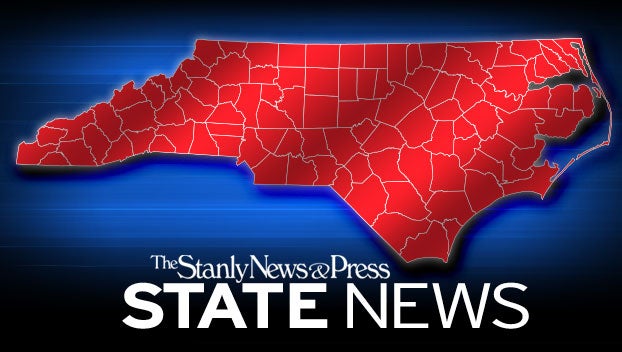Government impostor scams continue to be costly, new BBB research shows
Published 2:11 pm Thursday, June 2, 2022
|
Getting your Trinity Audio player ready...
|
The COVID-19 pandemic saw a rise in reports of scammers pretending to be from government agencies. While reports slowed since peaking in early 2021, victims lost more than twice as much money, according to new research by Better Business Bureau (BBB). BBB warns people to use caution if they are contacted by a government agency demanding money or offering a government grant for a fee.
BBB published an in-depth study in 2020 to educate the public about how to detect Government Impostor Scams. In 2021, consumers’ reports to the Federal Trade Commission (FTC) soared with losses of more than $445 million in government impostor scams, including impostors offering phony government grants, up from $175.4 million reported in 2020.
Likewise, BBB Scam Tracker data showed victims of government grant scams lost more money in 2021 than in the previous year. The median loss in government grant scams rose from $800 to $1,000, making it one of the more expensive and eighth riskiest scam reported to Scam Tracker in 2021, according to BBB Institute for Marketplace Trust’s 2021 BBB Scam Tracker Risk Report. Scam Tracker reports also showed government impostor scams as the second-most reported scams by businesses in 2021.
Almost all government impostor scams use a law enforcement angle with some impersonating law enforcement agencies directly. In these cases, they have a fairly high success rate. FTC statistics show that more than one in five people who reported a law enforcement impostor scam in 2021 lost money, with a median loss of $3,000.
A California woman’s story shows how devastating falling victim to this scam can be. She reported to BBB Scam Tracker in September 2020 that someone acting as if they were with the Alameda County Sheriff’s Office contacted her by phone. The caller claimed there was a warrant out for her arrest because she had missed a federal court hearing after being subpoenaed.
The scammer told her that she had to prove she did not receive the subpoena by paying a $4,000 bail that would be returned to her. If she failed to produce the bail money, she was threatened with arrest and told she would pay higher criminal fines. She also was told that she was under a gag order and could not discuss her situation with anyone.
The woman said she was in the middle of paying off the bail in $500 increments through MoneyPak when she finally called 911 to report the scam. She lost $2,550.
“I lost hours at work and had trouble focusing on my job as I was traumatized by the violations, which ultimately led to getting written up,” said the woman, who eventually had to switch jobs. “I still have negative memories of this experience and feel idiotic and ashamed for falling for this. While I have not been targeted since, it has left permanent emotional scars.”
Tips to avoid government impostor or government grant scams:
● Will a federal agent call you? Government agencies like the Social Security Administration, IRS or FBI do not call people with threats or promises of money.
● Do not trust your caller ID, as scammers can spoof legitimate numbers. If you receive a phone call,
check with the real agency by going to the agency’s website directly, then click contact us to find out how to connect. Do not trust numbers that may be included in emails or text messages.
● Do not click on links inside a text message or email purporting to be from a government agency.
● Social Security numbers are never “suspended.” The Social Security Administration will never threaten to arrest you because of an identity theft problem.
● Never provide your bank account or other personal information to anyone who calls you claiming to be associated with the IRS. The IRS generally makes its first contact with people by regular mail – not by phone – about taxes.
● Never pay with a gift card, wire transfer or cryptocurrency. No government agency will take those forms of payment.
● Don’t pay for a “free” government grant. If you must pay money for a “free” grant, it isn’t free. Go to
Grants.gov and Financial Consumer Agency of Canada for lists of official grants.






